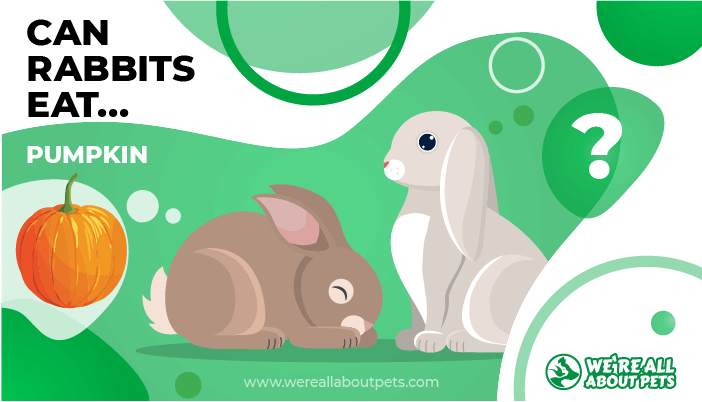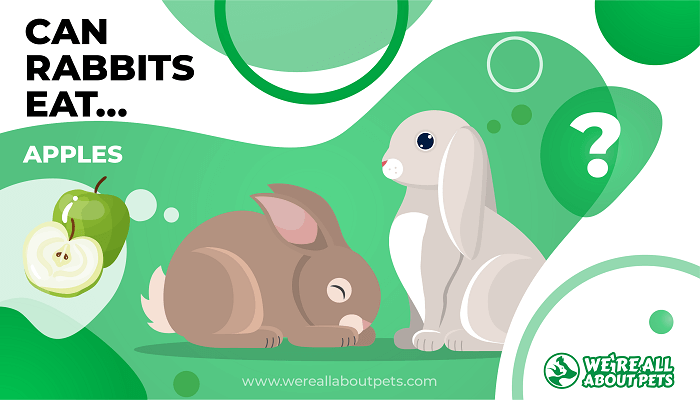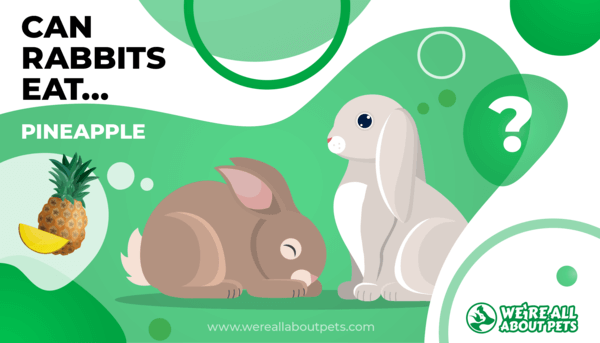Can Rabbits Eat Cantaloupe?
This page contains affiliate links. We may earn money or products from the companies mentioned in this post through our independently chosen links, which earn us a commission. Learn More
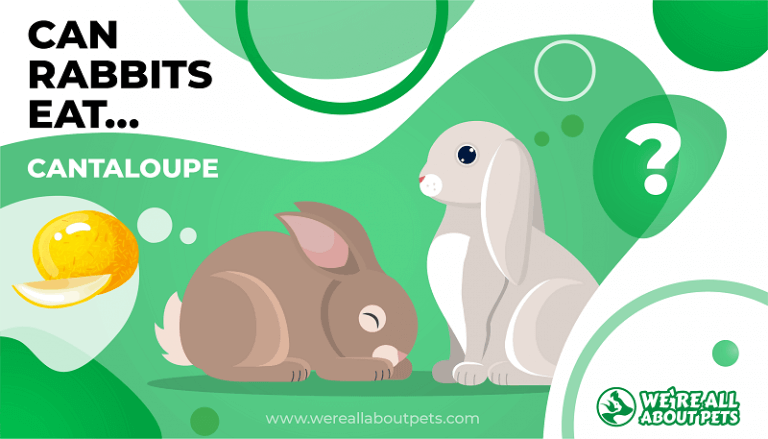
Just about everybody loves cantaloupe! Its sweet sunny flavor makes it a favorite with people all around the world. But is it safe for bunnies? Can rabbits have cantaloupe has a refreshing treat?
The short answer to this question is yes. In fact, bunnies go crazy for cantaloupe!
Stick with us for just a few moments though, because there are a few very important things to know about feeding cantaloupe to rabbits. To begin with, bunnies can tolerate only small amounts of cantaloupe at a time.
Keep on reading, and we’ll give you the complete scoop. You’re about to learn everything there is to know about cantaloupe for rabbits.
Cantaloupe Nutrition Stats
Cantaloupe is so delicious, it might be hard to believe that it’s actually great for you!
A refreshing 1-cup serving of cut-up cantaloupe gives you approximately:
- 60 calories
- 6 g carbohydrates
- 6 g fiber
- 5 g protein
- .3 g fat
Cantaloupe Nutritional Facts
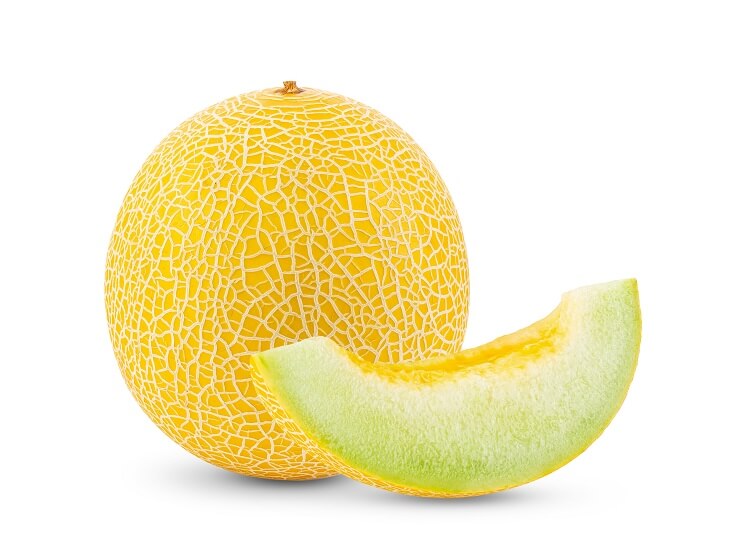
Cantaloupe is an excellent source of vitamin C for you and your bunny, and it offers lots of vitamin A too. If you treat yourself to a full serving of cantaloupe, you’ll get more than 100% of the daily recommended intake for both vitamins along with many other important nutrients:
- 5987 iu vitamin A
- 473 mg potassium
- 65 mg vitamin C
- .1 mg vitamin B6
- .1 mg manganese
- 2 mg magnesium
- .1 mg thiamine
- .2 mg pantothenic acid
- .1 mg copper
- 9 mg calcium
- 2 mcg folate
- 4 mcg vitamin K
Can Rabbits Have Cantaloupe?
Yes! Rabbits can have cantaloupe as an occasional treat. It’s important to note here that even the healthiest fruits should make up only a small portion of your rabbit’s diet.
Properly prepared and offered in small amounts, cantaloupe can be a wonderful treat for your pet. Be sure to remove the seeds from the cantaloupe before you give it to your rabbit, as they are sharp and can lead to serious trouble.
Is Cantaloupe Good For Rabbits?
Because rabbits need plenty of vitamins and minerals, cantaloupe is an excellent choice when it comes time to choose a natural treat for your bunny.
Hold on though!
Before offering your bunny a big slice of cantaloupe, there’s something you should know. Foods that are high in water and sugar can cause diarrhea and a painful case of gas.
Be very careful to offer no more than the recommended serving size. While cantaloupe is good for rabbits, too much can be harmful.
How Much Cantaloupe Can A Rabbit Eat?
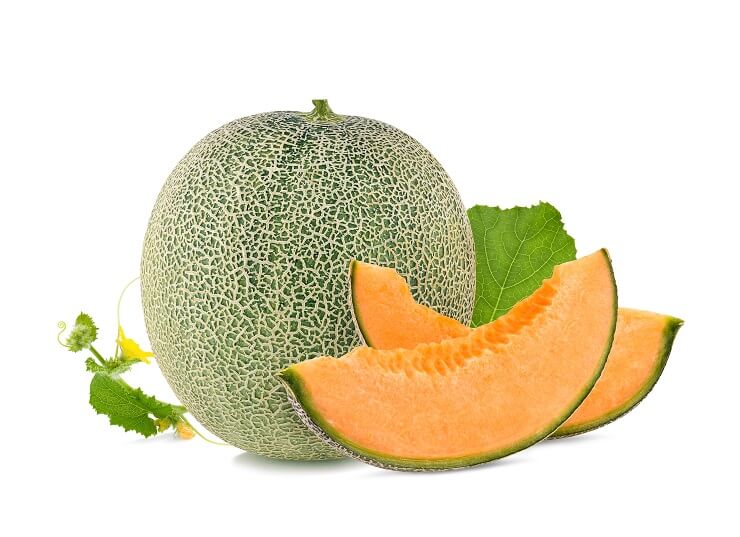
How many cantaloupe can a rabbit have, anyway? Here’s a quick guide:
| Age | Amount |
| Baby rabbits | None |
| Juvenile rabbits | None |
| Adult rabbits | 1 teaspoon per 2 pounds of body weight |
It’s really important to feed your rabbit cantaloupe in moderation. Overfeeding a sweet juicy fruit like this can cause painful indigestion that can last for days.
All new foods should be introduced gradually, and this includes cantaloupe. If your rabbit already eats juicy fruits like watermelon, you can give them half the recommended serving size of cantaloupe when you first introduce it to them.
Monitor your rabbit for signs of indigestion, discomfort, and diarrhea for the next 24 hours. If you notice any issues it’s a sign that your rabbit didn’t tolerate the cantaloupe well and shouldn’t eat it in the future.
If everything went smoothly though, you can increase your rabbit’s cantaloupe serving size next time and gradually increase the amount you give them until they are eating a full portion.
How Often Can A Rabbit Eat Cantaloupe?
Once your rabbit is accustomed to cantaloupe they can eat it up to three times per week but not on the same day as you offer other snacks that are high in sugar or water.
The best approach is to offer a wide variety of different treats and to avoid feeding your bunny sweet foods on a daily basis.
Rabbits that he too many sweets are prone to obesity, plus they have a tendency to develop a sweet tooth that leads them to ignore the healthy food they should be eating.
The Correct Diet Is Important
Just like wild rabbits, your pet needs a high-fiber diet that consists mostly of grasses. Good news – you don’t have to pick the grass yourself – just give your bunny a constant supply of fresh hay to nibble.
There are a few different kinds of hay to choose from – pick one or mix things up to make life even better for your bunny!
Besides an unlimited amount of hay, here’s what else to feed your rabbit:
- Clean, fresh water – no limit.
- Age-appropriate rabbit food – check the label to find the correct serving size.
- Fresh salad – about 1 cup of leafy green vegetables per 2 pounds of body weight, along with a few other veggies. Rotate between a variety of fresh vegetables to prevent oxalate and calcium buildup that can lead to serious health complications.
- If your rabbit’s food doesn’t already contain seeds, you’ll want to offer approximately a tablespoon of large, nutritious seeds such as pumpkin seeds or sunflower seeds.
- Treats in very small quantities. At a maximum, offer no more than a teaspoon of rabbit-safe fruit per two pounds of body weight per day.
Rabbit toys might not be food, but they are just as important for your bunny’s health as the correct diet is. Your bunny needs something to chew at all times. The reason for this is that rabbits’ teeth never stop growing and without something to gnaw, they can become overgrown and painful.
What Are Other Healthy Alternatives To Cantaloupe In A Rabbit’s Diet?
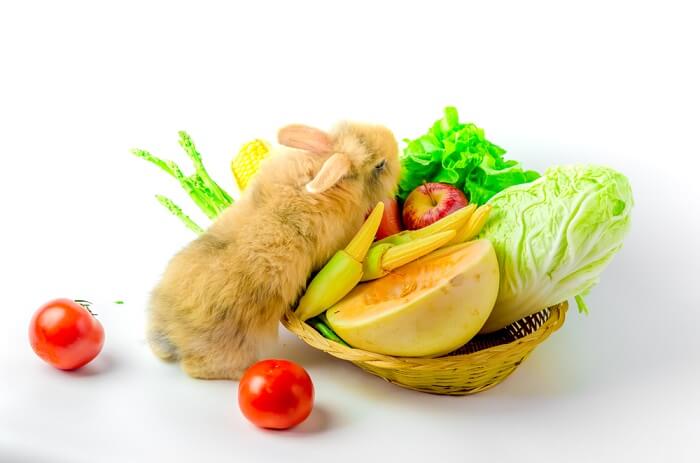
Since rabbits should eat cantaloupe in moderation, you’ll want to find lots of different treats to offer. The good news is that there are many vegetables that are good for rabbits – and we’ve listed some of the most popular varieties here:
- basil
- cilantro
- parsley
- buttercrunch lettuce / butter lettuce
- bibb lettuce
- romaine lettuce
- red lettuce
- carrot tops
- beet greens
- chard
- turnip greens
- spinach
- kale
- mustard greens
- arugula
- cabbage
- cauliflower
- sweet bell peppers
- broccoli
- dandelion greens
- escarole
- endive
- bok choy
- yu choy
- fennel
It’s a very good idea to offer your rabbit and wide variety of different foods throughout the week instead of offering the same things over and over again. Many nutritious vegetables contain high levels of calcium and oxalate that can build up in your bunny’s system and cause debilitating issues including kidney stones and bladder sludge.
Giving your rabbit cantaloupe is a fun way to add essential nutrients and plenty of sweetness to their diet – give it a try!
Frequently Asked Questions
Is cantaloupe safe for rabbits?
Yes, cantaloupe is safe for your rabbit to eat, so long as you remember to remove the seeds and stick to the recommended serving size.
Can I give cantaloupe to a baby rabbit?
Never give sugary treats like cantaloupe to a baby rabbit. Because baby rabbits cannot digest sugar, this can cause serious problems and maybe even lead to your bunny’s death.
Can cantaloupe make my rabbit sick?
Yes, too much cantaloupe can make your bunny sick. The best way to prevent this is to offer no more than a small amount, particularly at first. By providing a gradual introduction to cantaloupe, you can help keep your rabbit healthy while allowing them to enjoy a very special treat.
Is it OK for rabbits to eat cantaloupe seeds?
No, it's not a good idea to feed the rabbits cantaloupe seeds. The seeds are sharp and slippery. They can damage your rabbit’s mouth or cause damage to your bunny’s digestive tract if they are swallowed whole.






